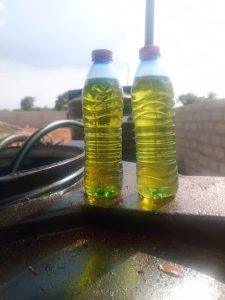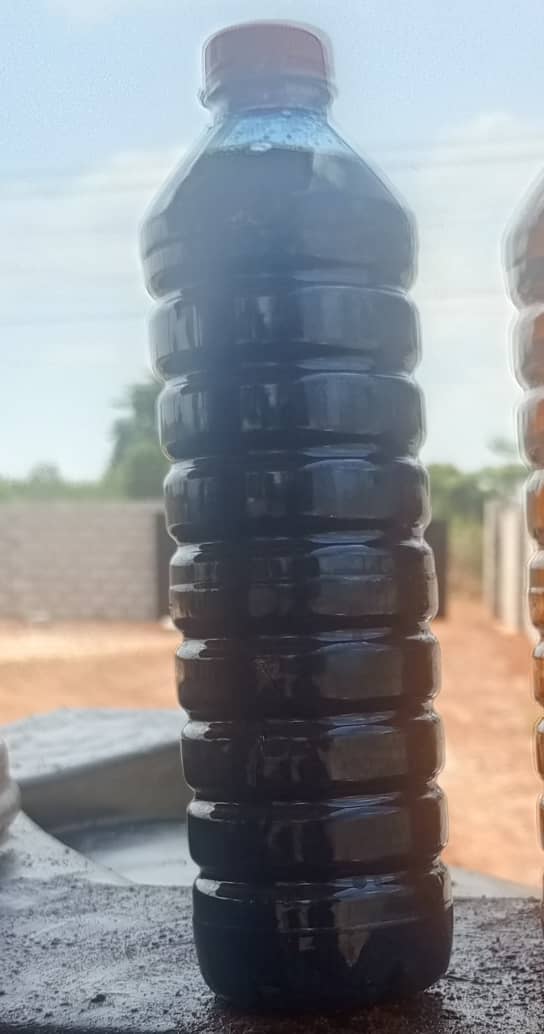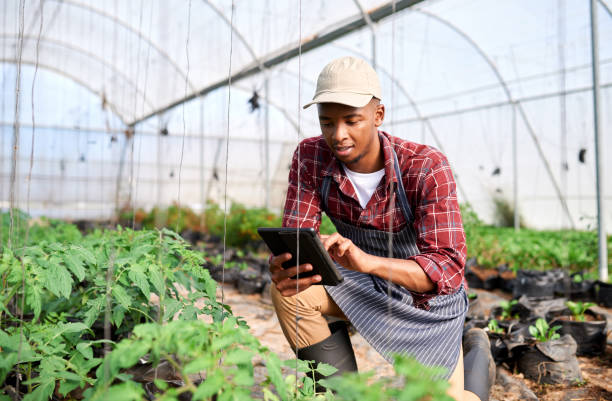Tahir Field Recycling Turns “Dirty Oil” into Goodies
By: Mohammed A. Abu
Ghana is actively transitioning from the wasteful, take-make-use-waste-discard linear economy to a circular (resources use efficiency oriented) economy through policies like the National Plastic Management Policy.
Key initiatives include developing Circular Economy Centres and Hubs for technical training and business incubation, supported by organizations like the UNIDO, UNDP and the European Union. These efforts aim to reduce waste and pollution, promote resource efficiency, and ensure a just transition that includes women and youth in economic opportunities.
Circular economy principles appreciates waste in whatever form as no burden but rather, as raw material from which to create new industries to boost sustainable development, create jobs, and foster innovation, with significant focus on waste management, particularly plastics.
.Against this background, your favourite, the Eco-Enviro News, Africa caught up with Tahir Umar, CEO of Tahir Field Recycling in an interview. The Ghanaian owned green technology start-up company is driving the recycling of waste engine oil into usable engine oil paradigm at Sekyere,in the Ashanti Region of the country.
Tahir Field Recycling has been an incubation partner with Ghana Climate Innovation Centre(GCIC), receiving support for business development, financial management, and technology.
To know more about how the start-up company started and how far it has come now and what are its future projections, read on:
1.Que: Kindly tell us briefly about yourself and what exactly you do at Tahir Recycling Ltd
Ans: I am Tahir Umar, general manager at Tahir field recycling. We recycle waste lubricants oil from garages and companies into useful products and by-products to protect the environment from pollution, preserve precious natural resources and create jobs for fellow youth.

Tahir Refined Engine Oil
The Motivation Factor
2.Que: What was the motivation factor behind your decision to go into recycling dirty oil and when was that?
Ans: Our motivation was to tackle the negative environmental effects of waste engine oils and to show to people that waste could be a resource for job creation and national development. This idea came about during my preparation to submit my final year undergraduate thesis topic to my supervisor at the university for development studies (UDS) in 2017. We want an impactful project that will contribute positively to the environment and the economy but also to create jobs for us and other youth.
Navigating Early Stage Challenges
3.Que: What were the initial challenges encountered if any in the early stages of your business and how you were able to address them in order to move on?
Ans: the challenges were many, key among them were convincing family and friends about the possibility of recycling waste engine oils, but having skilled artisans to locally build the machines was the biggest challenge we faced together with market acceptance as we worked tirelessly to improve the quality of our products. We also experience fire outbreak that destroyed everything that we worked for in 2023. By sheer determination and consistency with an open mind to innovate and adapt to the numerous challenges we faced, we were able to convince our families about the viability of the business, with continuous improvement of our products based on regular research, we won the trust of customers to patronize our product.
Successes and Achievements
4.Que: What are the successes and achievements so far made by your company that you would like to share with our readers?
Ans: we started with a 12L per day plant at the back of the house in 2021, moved to 500L plant and now have 3000L plant currently.
Impact of External Support
5.What was the recycled products output before the European union support and how much has the receipt of the external support impacted the business as of now?
Ans: the support was a great catalyst for our business, we built a new plant and moved to our permanent site through the supports from the SNV- European Union, Ghana climate innovation center and GiZ, we have also procured important equipment to improve quality assurance and efficiency of our production which has impacted us positively.
Producing Biodiesel from Waste Cooking Oil Plan
6.Que: Have you ever thought of recycling waste cooking oil into fuel for automobile too?
Ans: Yes, with waste cooking oil, we would produce biodiesel, we are appealing to restaurants and companies to partner with us to recycle their waste cooking oils into useful products to reduce waste.
Tahir Field Recycling’s Long Term Vision
7.Que: What is your corporate vision for the next five-ten years?
Ans: our vision is to grow to 10000L per day in the next five years and expand to three new regions in the next ten years, becoming the leading waste oil recycling company in Ghana.
Message to Ghanaian Youth
8.Que: What message may you have for the Ghanaian youth?
Ans: Believe in yourself, start where you are with what you have, we are the present and future of this country and Africa, let’s build it in our own image.
The core business of Tahir Field Recycling is to process used engine oil, turning “dirty oil” into refined base oils and diesel fuel has yielded environmental and community impact.
Environmental Impact: The process helps to reduce the indiscriminate disposal of waste oil, preventing potential pollution of drinking water.
Community Impact:The growing production has led to increased local employment and provides more affordable recycled oil for local businesses




